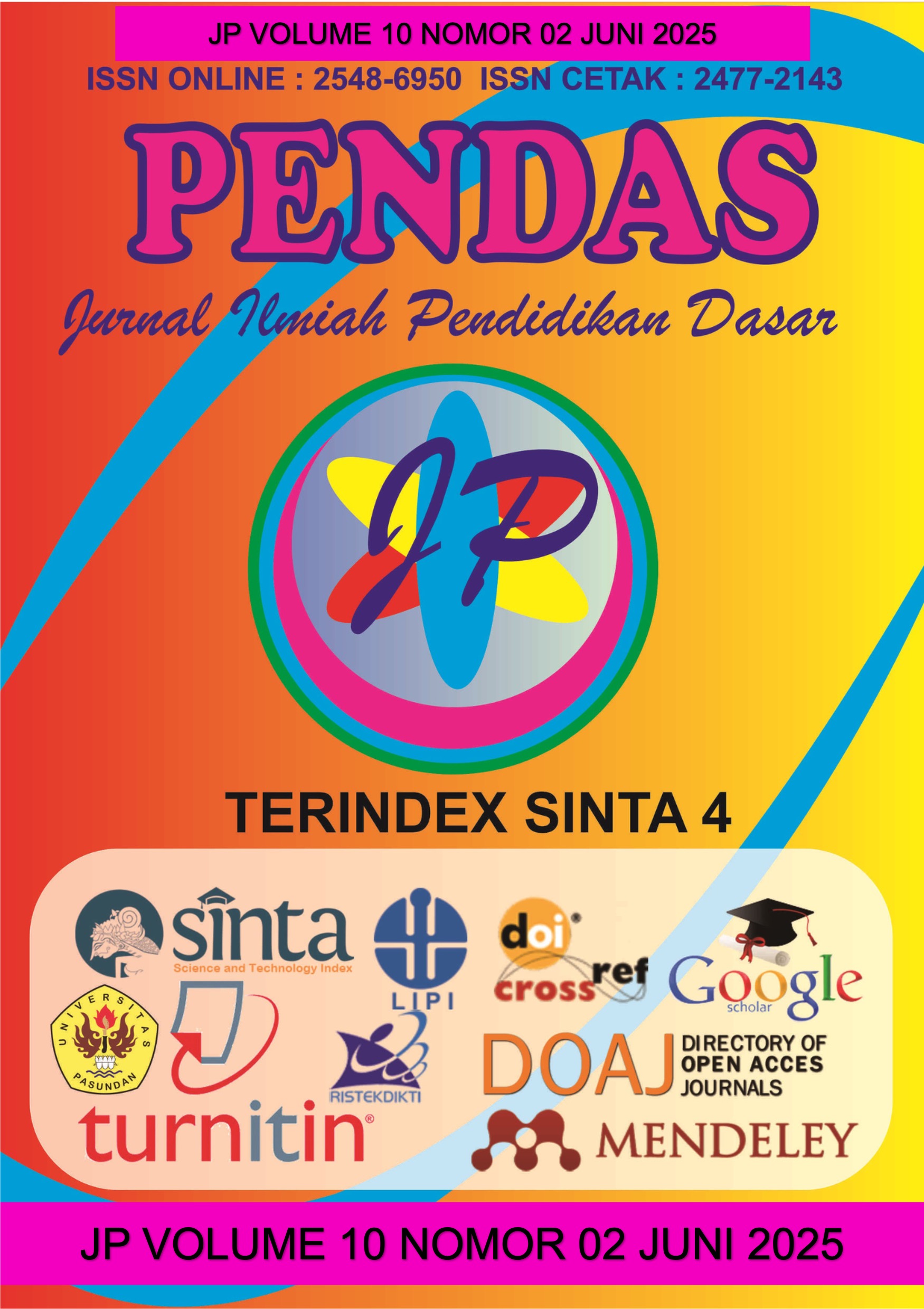IMPLEMENTASI BUDIDAYA AQUAPONIK RAKIT APUNG DALAM MEMBENTUK KARAKTER GOTONG ROYONG SISWA KELAS V SEKOLAH DASAR NEGERI POLOKARTO 3 KECAMATAN POLOKARTO KABUPATEN SUKOHARJO TAHUN AJARAN 2024/2025
DOI:
https://doi.org/10.23969/jp.v10i02.24540Keywords:
Floating raft aquaponics, Mutual cooperation characterAbstract
The purpose of this research is to describe the implementation of Floating Raft Aquaponics cultivation in fostering the spirit of mutual cooperation among fifth-grade students at Polokarto 3 Elementary School. This study employs a qualitative research design. The subjects of this research consist of all fifth-grade students at Polokarto 3 Elementary School. Data collection techniques used include interviews, observations, and documentation. Meanwhile, data analysis techniques involve data collection, data reduction, and data presentation. The data validity technique employed is triangulation. The results of the study indicate that Polokarto 3 Elementary School has implemented Floating Raft Aquaponics cultivation in developing the character of mutual cooperation within the framework of the Pancasila Student Profile Strengthening Project. This activity encourages students to collaborate, share responsibilities, and assist one another in designing, building, and maintaining the floating raft aquaponics system. Observations show an increase in collaborative attitudes and concern among students, while interviews with teachers and students indicate that this process is not only enjoyable but also reinforces values of togetherness and social responsibility. Based on the research findings, it can be concluded that the implementation of floating raft aquaponics cultivation in fostering the character of mutual cooperation is very enjoyable for students, enabling them to develop a sense of mutual cooperation independently and without coercion.
Downloads
References
Al-Ma’ruf, A. I., Arifin, Z., & Nugrahani, F. (2024). Exploring Ethical Frontiers: Moral Dimensions in the Tapestry of Contemporary Indonesian Literature. Studies in English Language and Education, 11(1), 587–604.
Bunga, J., Siammukaromah, N., & Hujjatusnaini, N. (2024). Implementasi Sistem Aquaponik sebagai Media Pembelajaran pada Modul P5PPRA di Madrasah Aliyah Hidayatul Insan Implementation of the Aquaponics System as a Learning Media in the P5PPRA Module at Madrasah Aliyah Hidayatul Insan. 4, 31–37.
Effendi, T. N. (2016). Budaya Gotong Royong Masyarakat Dalam Perubahan Sosial Saat Ini. Jurnal Pemikiran Sosiologi, 2(1), 1. https://doi.org/10.22146/jps.v2i1.23403
Fahriani, S. S., & Suharningsih. (2018). Upaya Guru Dalam Menumbuhkan Perilaku Gotong Royong Pada Siswa Di Smp Muhammadiyah 5 Surabaya. Kajian Moral dan Kewarganegaraan, 06(01), 76–90. http://slideshare.net/wancoker,pelaksanaan-nilai-gotong-
Hasanah, R., & Ernawati, E. (2020). Studi Pendahuluan: Konstruksi Instrumen Penilaian Analisis Konten Buku Teks Geografi Berbasis Nilai Ppk. Jambura Geo Education Journal, 1(2), 47–54. https://doi.org/10.34312/jgej.v1i2.6949
Mouwn Erland. (2020). Metodologi Penelitian Kualitatif. In Metodologi Penelitian Kualitatif. In Rake Sarasin (Nomor March).
Mulyani, D., Ghufron, S., Akhwani, & Kasiyun, S. (2020). Peningkatan karakter gotong royong di sekolah dasar. Quaterly Journal of Health Psychology, 8(32), 73–92.
Nugrahani, F. (2014). Metode Penelitian Kualitatif dalam Penelitian Bahasa. Surakarta : Cakra Books
Kemendikbud. (2021). Buku Tunas Pancasila. In Direktorat Sekolah Dasar Dirjen PAUD, Dikdas dan Dikmen Kementrian Pendidikan, Kebudayaan, Riset dan Teknologi.
Piesesa, M. S. L., & Camellia, C. (2023). Desain Proyek Penguatan Profil Pelajar Pancasila untuk Menanamkan Nilai Karakter Mandiri, Kreatif dan Gotong-Royong. Jurnal Moral Kemasyarakatan, 8(1), 74–83. https://doi.org/10.21067/jmk.v8i1.8260
Wibowo, S. W. (2021). Pemanfaatan Kolam Ikan Untuk Budidaya Tanaman Dengan Aquaponik. Dinamisia : Jurnal Pengabdian Kepada Masyarakat, 5(4), 921–927. https://doi.org/10.31849/dinamisia.v5i4.7161
Downloads
Published
Issue
Section
License
Copyright (c) 2025 Pendas : Jurnal Ilmiah Pendidikan Dasar

This work is licensed under a Creative Commons Attribution 4.0 International License.














































